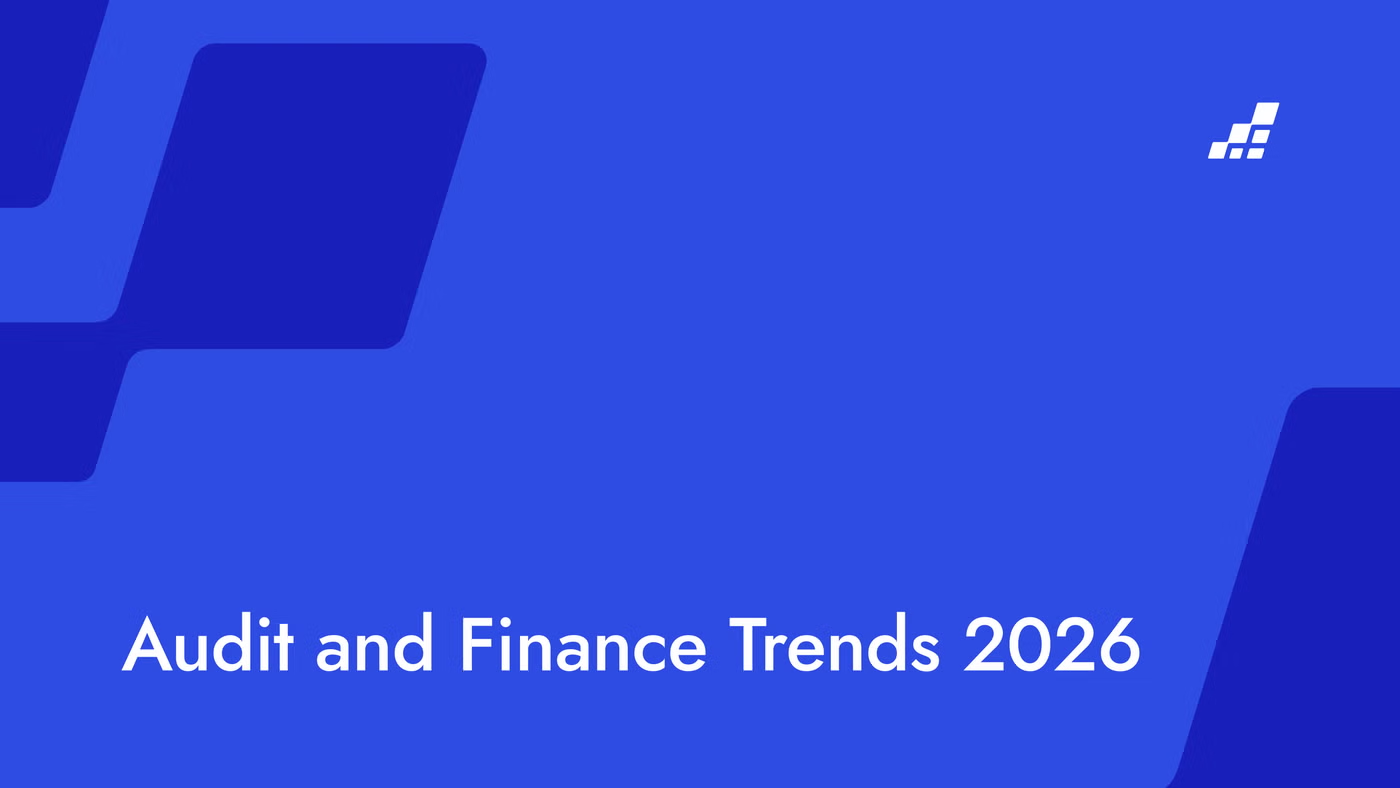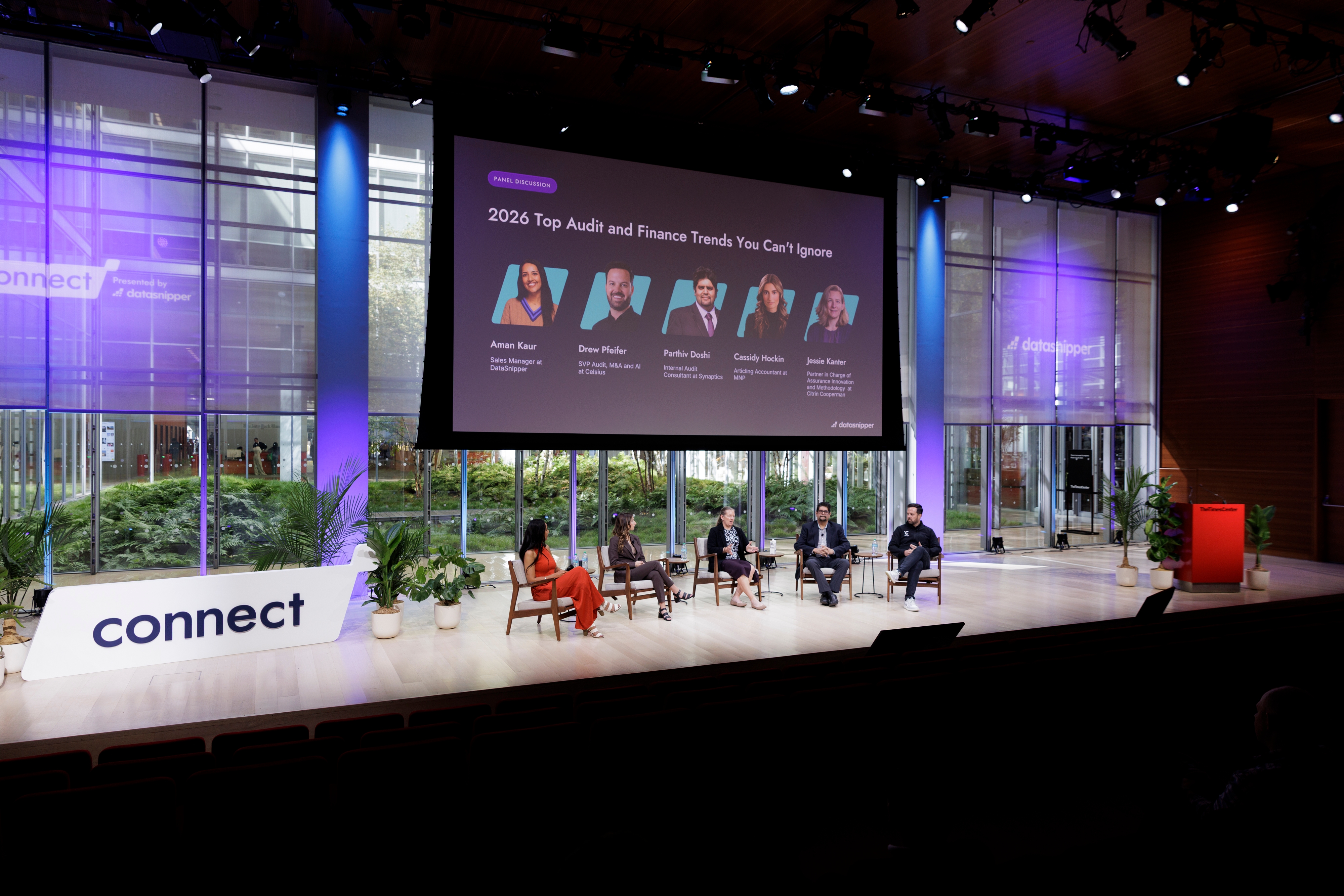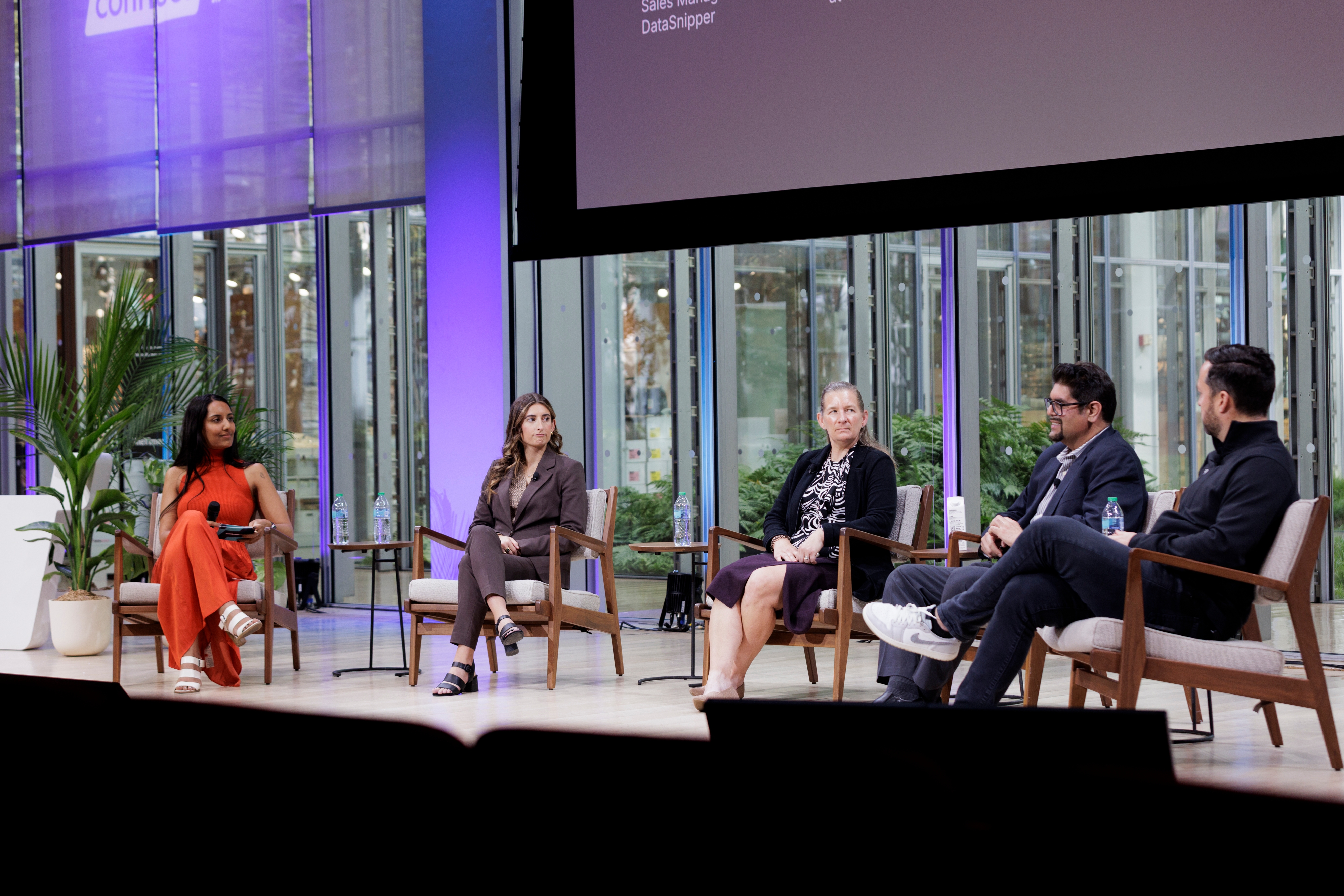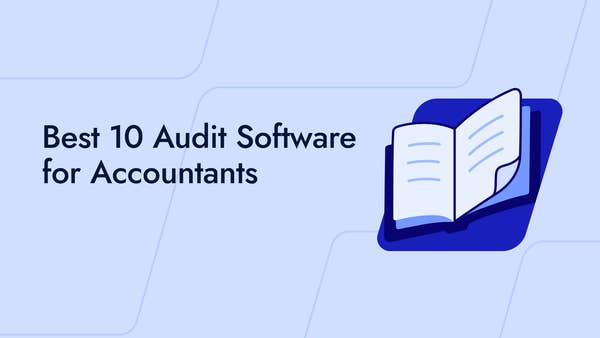- /
- Blog
Top 7 Audit and Finance Trends for 2026: What’s New, AI Adoption and More

Year-end is a natural moment for reflection. It’s the time where audit and finance professionals are evaluating performance, identifying opportunities for improvement, and anticipating what is coming next.
At DataSnipper Connect ‘25 in New York, we sat down with four industry experts to talk about their takes on the top audit and finance trends for 2026.
The session was moderated by Aman Kaur, Corporate Sales Manager at DataSnipper, and featured insights from speakers Drew Pfeifer, Senior Vice President of audit, M&A and AI at Celsius; Parthiv Doshi, Internal Audit Consultant at Synaptics; Jessie Kanter, Partner in Charge of Assurance Innovation and Methodology at Citrin Cooperman; and Cassidy Hockin, manager at MNP.
In short: their insights revealed a profession in rapid evolution, where human intelligence and machine intelligence are merging to open up new levels of speed, accuracy, and trust. See the full session below and read on to learn about the top 2026 audit and finance trends.
1. AI adoption is increasing. And it’s no longer a “future trend”
AI has officially crossed from experimentation to expectation - becoming essential for every audit and finance function. “Be prepared for faster audits and quicker insights,” said Drew Pfeifer, who leads audit and AI integration at Celsius.
“External audit teams are finally embracing AI internally - not just talking about it.”
Across the panel, speakers agreed that 2025 marked the year when adoption turned into execution. Tools once reserved for innovators are now becoming essential.
Cassidy Hockin from MNP captured the shift in mindset:
“If anything is taking you longer than 20 minutes, you should be looking at how to do it faster - with AI or the tools your firm is giving you.”
Her advice echoes a growing movement in the industry: work smarter, not longer.

Panel discussion at Connect NY 2025
2. Change management is the missing link in AI success
Technology alone doesn’t create transformation - adoption does.
Leaders are investing in structured change programs to help professionals navigate new workflows and expectations. The strongest firms are treating AI adoption like a cultural rollout, not a technical one - embedding communication, training, and feedback loops into every phase of deployment.
Change management has emerged as a core competency for audit innovation, ensuring that digital progress scales beyond a few early adopters.
Jessie Kanter of Citrin Cooperman emphasized that success depends on structured change management:
“You can’t just give people a tool and expect them to use it. You have to show them how, communicate the vision, and repeat it ten different ways until it sticks.”
Firms investing in formal change leadership are already seeing smoother adoption and higher ROI. According to Kanter, “Everyone needs to understand what’s in it for them. That’s the only way to bring Type-A accountants out of their comfort zone.”
3. AI readiness starts small - but starts now
The fastest-moving teams are the ones that start before they feel ready.
Audit and finance leaders agreed: waiting for the “perfect use case” is no longer an option. Firms seeing the most impact are those testing small automations, learning from them, and iterating quickly.
Momentum, not mastery, is the differentiator heading into 2026. Every workflow modernized - no matter how small - compounds over time to reshape team capacity and confidence.
For Parthiv Doshi, who leads internal audit consulting at Synaptics, the key is to think practically:
“Start small but start now. Even incremental improvements compound over time. You’ll never have the perfect use case - the important thing is to begin.”
Doshi also advised teams to keep a simple automation tracker: “List out where you can automate or improve a process, then socialize it across audit, IT, and operations. Just having those conversations builds readiness.”
4. Security and trust remain non-negotiable
While enthusiasm for AI is high, data privacy and cybersecurity are front of mind for every leader. “It’s not making it in the door if it’s not secure,” said Hockin, reflecting MNP’s firm stance on client data protection.
Pfeifer agreed, highlighting the importance of creating safe enterprise environments:
“Keep your data safe, then open it up for people to use. When I joined Celsius, I built the business case to implement enterprise GPT because I couldn’t work without it - but it had to be secure.”
This balance between innovation and control is defining the next phase of digital audit transformation.

Panel discussion at Connect NY 2025
5. Continuous learning is becoming a core audit skill
Technical knowledge alone no longer defines audit excellence - adaptability does.
The pace of change demands professionals who can learn as quickly as the tools evolve. Firms are redesigning learning programs to blend technical fluency, AI literacy, and soft skills like negotiation, communication, and critical thinking.
Continuous learning is no longer about maintaining credentials, but rather about staying employable in an AI-accelerated market.
“Spend one hour a week learning,” urged Doshi. “Balance AI and technical skills with negotiation, resilience, and mindfulness. Internal audit is as much about people as it is about process.”
Panelists also noted that AI is changing how new auditors learn. Instead of spending years on manual testing, technology now helps them understand the “why” behind each audit step faster. “AI is making us better auditors,” said Kanter. “It teaches methodology and standards more effectively than any checklist ever could.”
6. The next phase: Agentic AI and connected workflows
When asked what they wish AI could do next, the panel’s answers converged on one idea - integration.
“I’d love if AI could connect everything together,” said Kanter. “One agent talking to another across tools, creating a seamless experience.”
These agentic systems - co-developed with Microsoft - enable AI to follow multi-step workflows, execute repetitive tasks, and collaborate directly within Excel. It’s the next evolution of audit automation: where humans set direction, and AI executes with precision.
With connected agents linking tasks like evidence extraction, disclosure review, and reconciliation, audit teams are entering an era of true continuous assurance.
7. The human element still defines the future
As AI handles execution, human judgment is shifting upstream - to insight, foresight, and impact.
Audit professionals are spending less time documenting and more time interpreting. The modern auditor’s value now lies in contextual understanding - connecting operational, ethical, and strategic dots that no algorithm can see in isolation.
“AI can find anomalies - but only humans can decide what’s right,” said Kanter. “Professional scepticism and ethical courage will always be core to audit credibility.”
As Hockin put it, “We shouldn’t be spending time finding answers - we should spend time analyzing them.”
Looking ahead to 2026: Top trends broken down
If 2025 was the year AI became mainstream, 2026 will be the year audit and finance redefine their value. Teams that embrace AI not just as a tool but as a trusted collaborator will move fastest - and build the most resilient, future-ready functions.
The shift is already visible: AI-driven assurance, real-time validation, and human expertise working in tandem to build continuous confidence.
Ready to see the next generation of AI in action?
This next step in intelligent automation brings multi-step workflows, evidence traceability, and real-time collaboration into audit and finance work - helping teams move from isolated efficiency gains to end-to-end audit intelligence.
.png?width=600&quality=70&format=auto&crop=16%3A9)
.png?width=600&quality=70&format=auto&crop=16%3A9)
